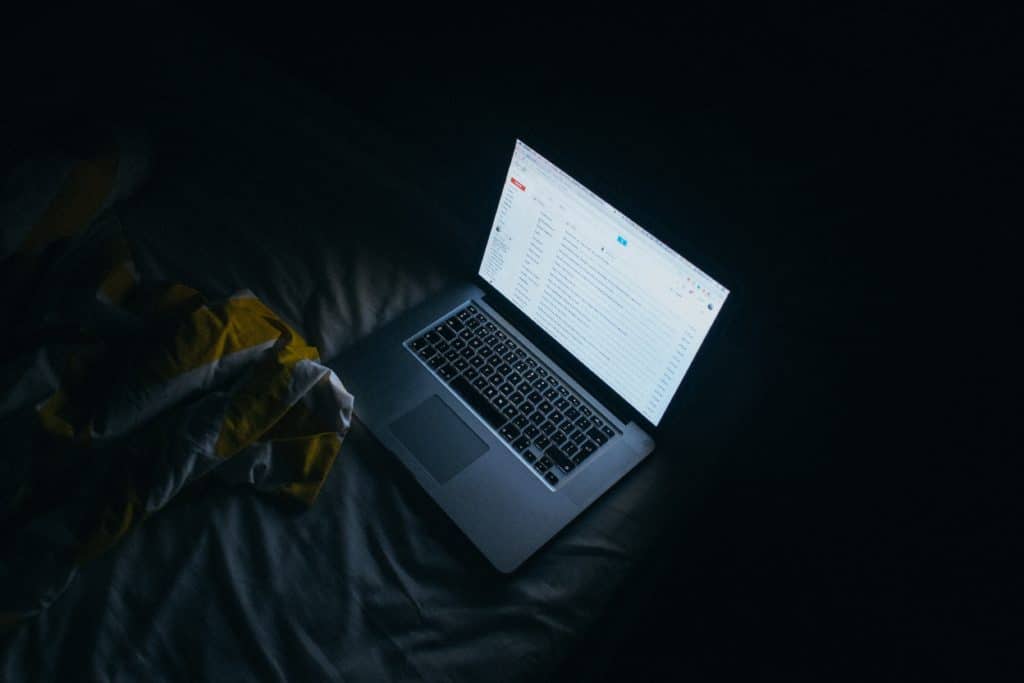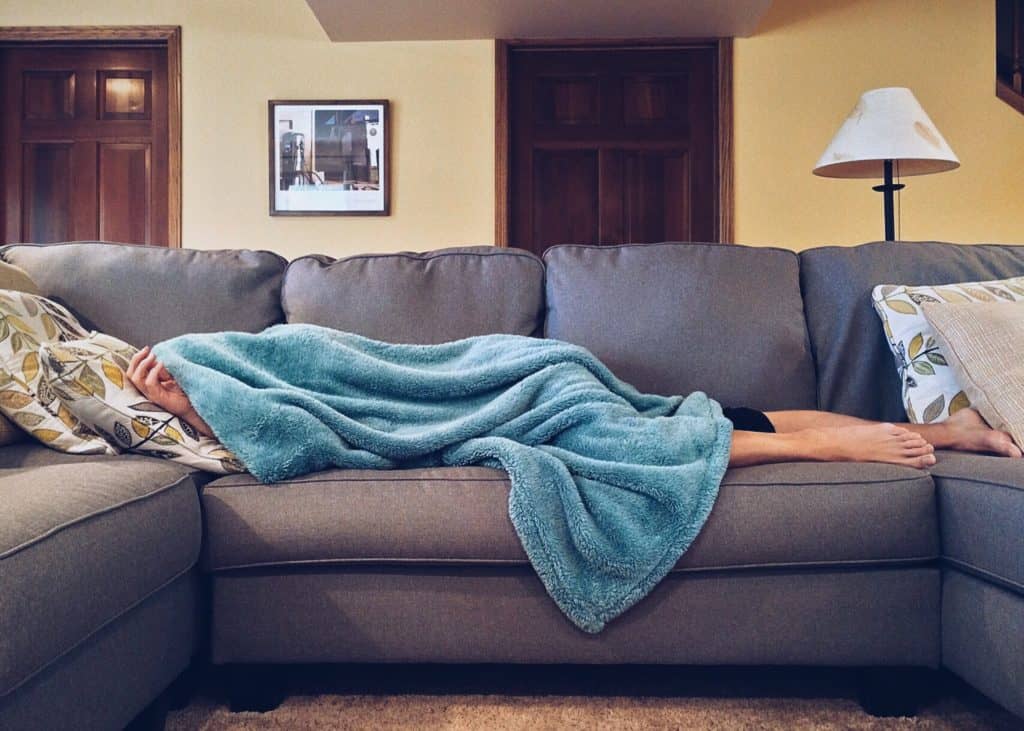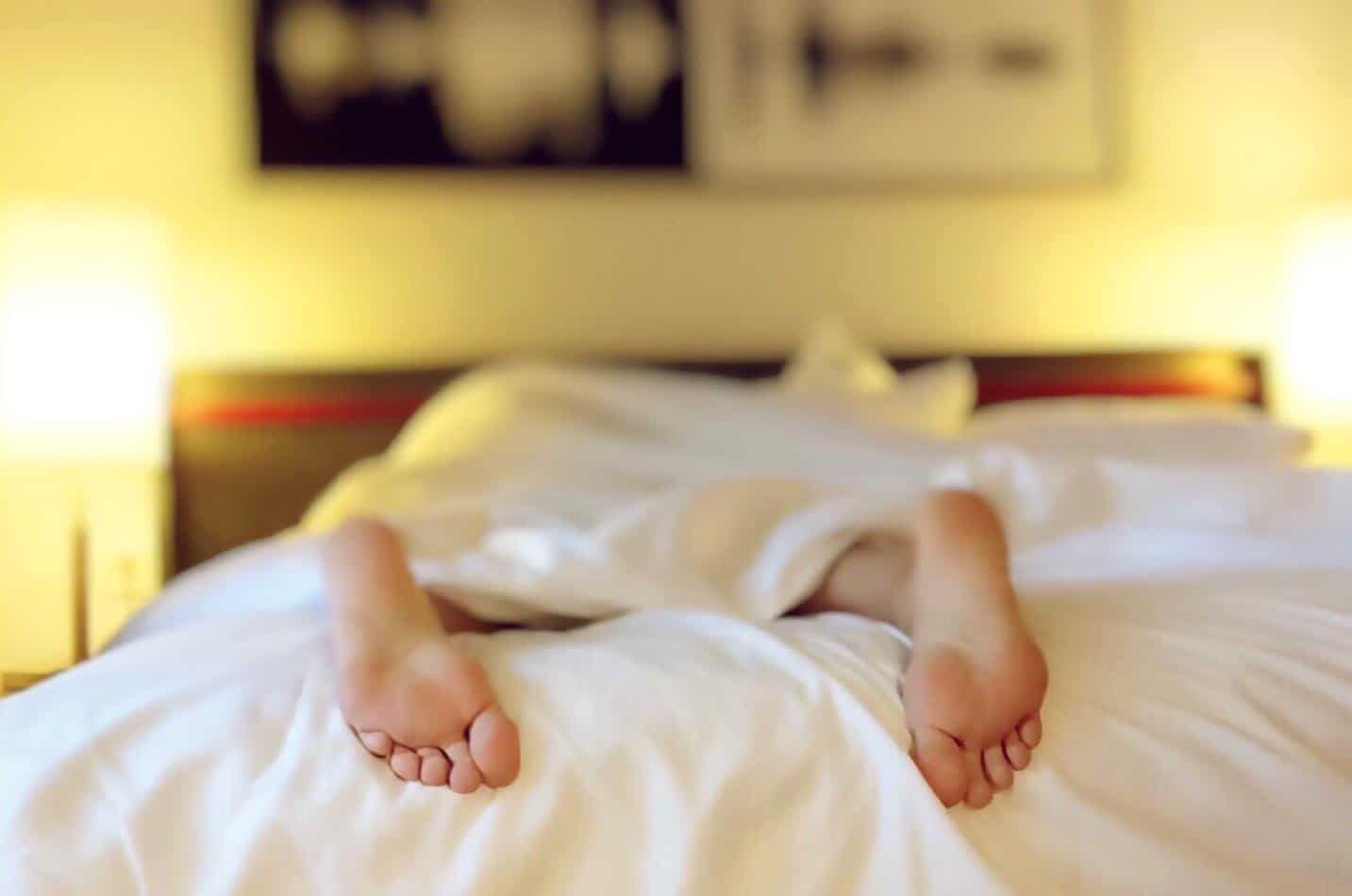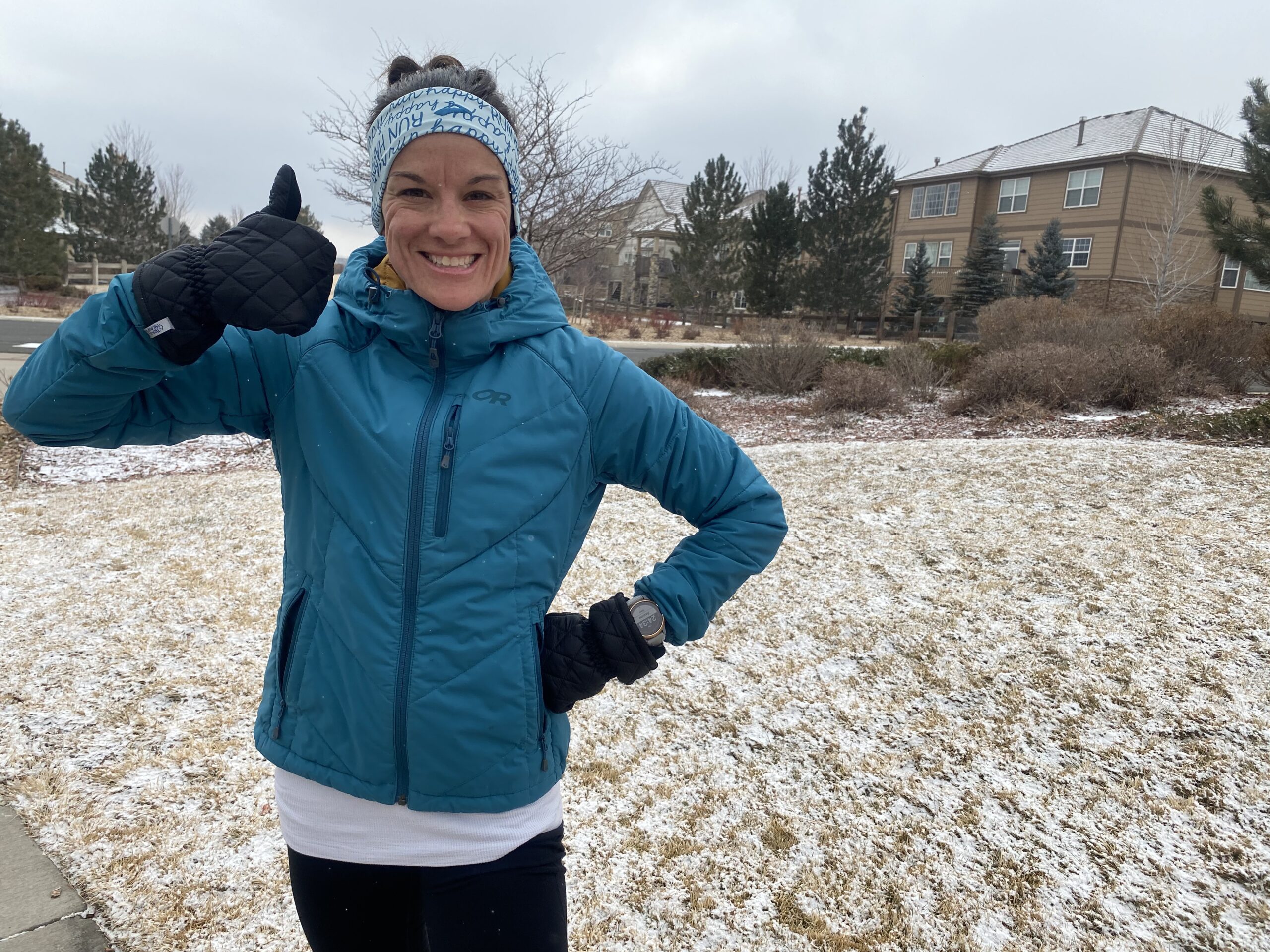I have to admit that sleep is not something I’ve put at the top of my list during my marathon training in the past couple of years. Like most runners, I’ve invested a lot of time and effort into understanding things like building up mileage, how to incorporate speed work, nutrition, how to avoid injury, etc. And although I probably complain way too much to my husband that I don’t get enough sleep, I’ve never made it a priority during training or otherwise. I’ve decided it’s time to really take a deep look at how important sleep is in marathon training and commit to getting more sleep. I hope you’ll join me!
Why is sleep so important in marathon training? Sleep is an important part of your physical well being. When training for a marathon you are putting a lot of stress on your body tissue. This is due to an increase in mileage and added speed work. The extra fatigue runners experience means they need even more sleep than the average person. This is when recovery happens. In order to do your best running and stay injury-free, proper sleep is vital.
How Sleep Helps Everyone
We all know we need sleep to survive. And we’re all well aware that we can only stay awake for so long before sleep takes over. We have all felt the effects of an amazing (and not so amazing) night of sleep.
But have you really thought about what is happening to your body while you sleep? I know I don’t really consider it. As someone who runs and strength trains 5-6 days a week, this is something I should probably know.
Harvard Medical School explains how answering the question of, “Why do we sleep?” is not as easy as you might think. There are many widely accepted theories, however.
These are thought to be the main reasons every human requires a proper amount of sleep:
- Solidifies Memories – during sleep, short-term memories are established in the brain to become long-term memories
- Information Retention – sleeping allows us to hold onto what we learn. This is one of the big reasons that babies and young children need so much sleep. They are learning at rapid speed and sleep allows for this cognitive development.
- Conserve Energy – By being inactive for 1/3 of our day we reduce our energy metabolism.
- Mood – Being crabby when you’re sleepy is not a coincidence. People who get enough sleep are truly happier.
- Immunity – Those who get enough sleep are much more likely to stay healthy and ward off sickness and disease.
- Restorative Functioning – Muscle growth, tissue repair, and the release of growth hormone all happen during sleeping hours.
Clear proof of why we sleep and why humans function and stay healthy within the 7-9 hour range has not been completely solidified. But all signs point to a number of reasons why good sleep is important for everyone. And athletes are better off at the higher end of that range.
My Poor Relationship With Sleep During Marathon Training

Just before my marathon in 2017, I began one of my current jobs that has me to work at 5 in the morning. This wouldn’t be a problem for some people who would just adjust and go to bed earlier. I still haven’t gotten the hang of going to bed at the right time to account for those early morning wake-ups. I relish in that nightly quiet time after my kids go down. Checking off my to-do list or if I’m being honest, sometimes just mindlessly scrolling Instagram.
I usually think I can tell when I’ve gotten enough sleep and when I haven’t. Since beginning that job, I’ve known that overall I haven’t gotten as much as sleep as I’d like. Yet, I find myself telling people that I can function just fine on 6.5 hours. That I’d prefer more, but that’s my magic number. But as an athlete, I’m starting to wonder if I’ve been doing myself a disservice. Maybe I trained for both marathons last year on the side of sleep deprived and could perform better. That’s what I need to find out and it’s likely you’re in a similar boat.
My reason for not getting enough sleep is somewhat by choice, though I often feel a need to accomplish tasks and work that I couldn’t get to during the day. For some, sleep deprivation may come in the form of insomnia or other outside factors keeping them awake at night. (Hello new mamas and daddies with babies…as a mama I have weeks where I deal with this, too.)
Some reasons are easier to fix than others, but as athletes, we owe it to ourselves to get to the root to try and get proper sleep.
I’m hoping that this research will convince me that I will be a better runner if I can start squeezing in one more hour of sleep each night.
Why Marathon Runners Need Extra Sleep

Athletes who train harder need more sleep. In the past you may have run a few days a week, maybe 15 miles or so, and you could get away with less sleep. Having a rest day in between each run requires less sleep, too. When you only have 1-2 rest days factored in your training each week, however, trying to get away with less than 7 hours of sleep per night will affect you negatively. Like me, you may feel like you’re “getting away with it.” In actuality, I’m realizing now that my performance is suffering.
Athletic Performance and Speed
Sleep just might be the edge you’ve been searching for to get that personal record. So often we hear about the importance of the long run or speed work or foam rolling to be our best running selves. But sleep is a big piece of the puzzle that I think a lot of us are missing. As I write this, I’m realizing that my 6.5 hours of sleep per night is giving me a minimum of a 10-hour sleep deficit every single week! Yikes.
We already know that running requires us to expend lots of energy. If we want to run longer and faster, we look to fuel. We know those carbohydrates (as I talked about here) are necessary for running mile after mile. But a huge component of sleep is literally reenergizing. It’s like our own personal battery charger. Without good sleep, we just won’t have the energy we need to see the positive running gains we work so hard for.
One night of poor sleep (like the night before a big race) isn’t the concern. It’s the cumulative effect of night after night of not enough sleep. It starts to add up fast, and until you can get back on track with a minimum of 8 hours a sleep per night, your running will suffer.
With the amount of miles necessary to train for a marathon, getting upwards of 9 hours of sleep per night definitely isn’t too much to run your best.
Injury Prevention
Sleep is the time where tissue repair happens. If you’ve ever had trouble walking, felt stiff in the joints, or needed to apply heat or ice after running (just to name a few), this is because your running is allowing you to get stronger. But first that means you’ll experience soreness and stiffness. Totally normal. What’s not normal is not giving your body enough time to recover from these discomforts. Overuse injuries can occur from building up mileage or speed too quickly. Poor sleep puts you at much greater risk for these same type of injuries.
As a runner, you have to be able to bounce back quickly from your workouts. After all, marathon training puts you running almost daily. Since sleep regenerates cells and repairs broken down tissue, if you don’t sleep enough for this to happen you won’t be ready for the next day’s run. And when you decided to do it anyway, this is when injury can occur.
Over training can also lead to poor sleep and injury. Find out how recovery runs are another way to stay healthy in training.
Immunity
Sleep plays an important role in immunity. Those who sleep more, get sick less often. Endurance runners experience inflammation in muscle and joints and need extra recovery time. When they don’t get it, they are risking illness. Additionally, those with poor sleep habits will take longer to fight off an illness. For an athlete, this means more time away from important training.
Nutrition
Evidence suggests that proper sleep plays a large role in the body’s ability to maintain a healthy weight. This study details many reasons why poor sleep can lead to weight gain. They found that sleep regulates glucose tolerance, appetite-related hormones, and the stress hormone cortisol. Each of these effects hunger or weight gain/loss. Nutrition is such a vital part of a marathon runners training. In this way, it’s important to understand how sleep affects a runner’s nutrition and caloric intake. Sleep deprivation can make you think you’re hungry when you actually don’t need any replenishment. This can lead to unnecessary weight gain that can reduce your running strength and speed.
Temperature Regulation
Quality sleep allows the body to properly regulate its temperature. Lack of sleep can lead to reduced sweating during exercise. Ultimately, this can leave a runner feeling hotter and hot days and colder on cold days. Interesting, right?!
How You Can Get Enough Sleep During Marathon Training
So now you know that sleep is not something you can skimp out on anymore. Now you’re thinking, but how can I make sleep a priority? Here are some strategies to get you the sleep you need.

Keep a Regular Sleep Schedule
Experts recommend sticking to a strict sleep schedule to control your internal clock. Plan to get no less than 8 hours of sleep per night. If this still doesn’t seem like enough, add in 30 minutes to one hour more. Then, choose your bedtime and wake-up time and keep it the same as much as possible. A less erratic sleep schedule will ensure you’re getting the right amount of sleep to give you the energy you need for your marathon training as well as your daily life.
Reduce Screen Time
This is one I’m sure you’ve heard before. Staring at your phone, TV, or computer within the hour before heading to bed messes with both your ability to fall asleep as well as the time it takes to enter REM sleep. According to the National Sleep Foundation, the use of screens at bedtime delays your circadian rhythm which reminds you when it’s time to sleep and suppresses the release of melatonin which induces sleep.
Ditching the screens at bedtime will help you fall asleep faster and get better quality sleep.
Nap
My night sleep is highly affected, but I do regularly have time in the afternoon to fit in a short nap since I have 2 children in school and 1 who still naps herself. Though I know that a 20-minute nap isn’t a replacement for 1.5 hours of missed sleep, I did want to determine if there is a benefit to a cat nap.
Research summarized by the Gatorade Sports’ Science Institute stated, “Napping may be beneficial for athletes who have to routinely wake early for training or competition and for athletes who are experiencing sleep deprivation.” Naps of 20 minutes are an athlete’s best bet to utilizing its powers of recovery without getting overly groggy to continue about their day.
I understand that most people’s work schedules don’t usually allow them to take naps. But even a 5 o’clock snooze on the couch after work can have benefits. Or fitting one in on the weekend after a long run can also be beneficial for your fatigued body.
Try a Supplement
I recently began taking a magnesium supplement called Calm. My husband and son both take it, as well. We have noticed a difference in our ability to sleep through the night in what feels like a more restful sleep. My neighbor swore by it, so we thought we’d give it a shot. It has helped us get the sleep we need! The Sleep Doctor goes in-depth about the role magnesium plays in sleep. As with anything you take, be sure to follow the correct dosage and check in with your doctor if you’re unsure about taking it.


Ask For Help
In this day and age, being “busy” is often a badge of honor. Bragging about burning the candle at both ends is sometimes regarded as hard-working instead of unhealthy. I know I have this problem. I often feel as if I need to fit just one more thing in during my day, when I really need should be going to bed. If this is you, consider how you can get something taken off your plate.
“Doing it all” doesn’t serve you well and isn’t practicing self-care. Consider how getting a little extra help can get you the extra sleep you might need. Is the work you’re staying up to do each night something you can delegate? Can someone watch your kids for you so you can squeeze in an afternoon nap? Can your husband do the bedtime routine a couple nights a week so you get to bed on time?
Asking for help isn’t a sign of weakness. You’ll not only be a better and more productive person in general, you will also notice running gains, too!
See a Doctor
If you’re someone who has trouble falling asleep or often wakes up in the middle of the night unable to go back to sleep, it would be a good idea to seek medical advice. Daily fatigue even when you are getting 7-9 hours of sleep per night is another reason to do so. Every person experiencing these issues should seek help. As an athlete, you have even more reason to do so. You are constantly putting your body under added stress, and continuing to do so with a major lack of sleep can lead to illness or injury.
Runners need SLEEP!
As marathon runners, we train hard. We put in the effort day after day. So why don’t we allow ourselves the time we need to sleep hard, too? We spend so much of our lives focused on our health and well-being. Yet so many of us are quick to take away from our sleep time when we feel like something has got to give. I hope I’ve convinced you (because I sure have convinced myself) that sleep is vital to being the best marathon runner you can be.
*As an Amazon Associate, I earn a commission from qualifying purchases.







